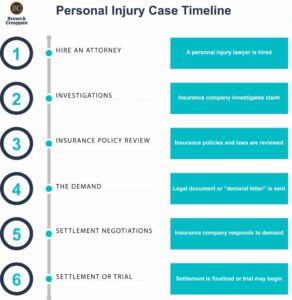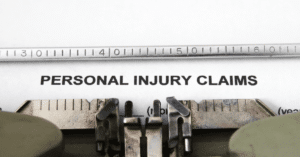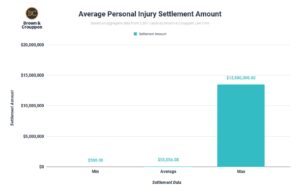Compensatory damages are also referred to as “actual damages.” It means the objective dollar amount needed to compensate (hence, the name) a plaintiff for the monetary value of what they either lost or incurred because of the injury. Typical compensatory damages in an injury claim include:
- Medical bills
- Lost wages
- Property damage
- Loss of income potential
- Rehabilitation costs, including occupational therapy and physical therapy
- Out-of-pocket costs
- The costs of canceled plans, such as vacations
- Necessary household services, such as in-home health care, house cleaning and lawn care
- Required structural modifications, like building a wheelchair ramp
For example, let’s say you were hurt in an auto accident. By the time you completed treatment, your medical bills came to $10,000. You couldn’t work for a week because of your injuries and you lost $500 in wages. It also cost $2,500 to repair your car. The compensatory damages compute to:
$10,000 + $500 + $2,500 = $13,000 in compensatory damages
WHY ARE COMPENSATORY DAMAGES IMPORTANT IN A LAWSUIT?
Compensatory damages can be a quick indicator of the severity of the accident and injury. A collision that results in scratched paint will probably have lower compensatory damages than an accident that results in a totaled vehicle. Similarly, a fractured leg requiring surgery and months of rehabilitation should have much higher compensatory damages than a few weeks of chiropractic care.
As your case progresses, your attorney and paralegal will ask you to keep them informed about any expenditures you incur because of the injury. They will also ask you to keep them up to date on any and all medical providers who treat your injury, as well as your employment situation. Your legal team needs to get every single bill, medical record, lost wages statement, and receipt to make sure they know the full amount of compensatory damages for your injury.
COMPENSATORY DAMAGES ARE THE BEGINNING, NOT THE END, OF CALCULATING THE VALUE OF A CLAIM.
Compensatory damages are only one part of the total damages in an injury lawsuit. After your attorney and paralegal gather all of your medical records, medical bills, proof of lost wages, and property damage receipts, they will use that evidence to make your case for non-compensatory damages.
Non-compensatory damages, also called “non-economic” damages, are far more subjective than compensatory damages. They include:
- Pain and suffering. This broad term describes the physical and emotional pain the injury causes. Weeks or months of nonstop pain or fatigue might not have a cash register receipt, but it absolutely has an impact on your mental, physical, and emotional well-being. The loss of enjoyment of hobbies, friends, and loved ones has value. Catastrophic injuries can result in a loss of mobility, bladder control, or mental acuity, which lead to feelings of embarrassment, depression, and resentment.
- Loss of consortium. This typically refers to the damage to a spousal relationship as a result of the injury. Intimacy, closeness, and other aspects of marriage can be deeply affected.
- Punitive damages. Punitive damages, sometimes called “exemplary damages,” are designed to both punish a defendant for wanton, reckless, or intentional behavior, and to deter that defendant from such acts in the future.
- Punitive damages are almost always awarded by a judge or jury after a trial. They will not be part of a pre-trial settlement.
If you ever have any questions about an injury you or a loved one has suffered, please call the personal injury attorneys at Brown & Crouppen toll-free at 1-888-803-1307, or use our contact form.








